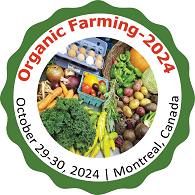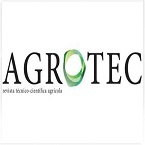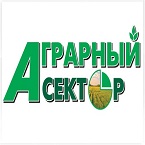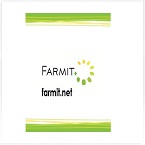Session & Tracks
Track 1: Agroecology
Agroecology is the practice of sustainable farming in harmony with nature, drawing from the field of ecology, which explores the intricate connections between plants, animals, people, and their surroundings while emphasizing the delicate equilibrium within these relationships. Agroecology entails the application of ecological principles and concepts to agricultural practices, aiming to seamlessly integrate these principles into the planning and management of farming systems. This approach prioritizes the enduring safeguarding of natural resources as an integral component of food production. The roots of agroecology can be traced back to the traditional agricultural and land-use techniques of Indigenous communities, pastoralists, fishermen, and rural farmers. These agroecological traditions emerged from the profound interdependence between the well-being of these communities and their local environments.

Track 2: Principles of Organic Agriculture
The fundamental tenets of Health, Ecology, Fairness, and Care serve as the foundational principles upon which organic agriculture sprouts and evolves. These principles not only exemplify the potential of organic agriculture to contribute to the betterment of our world but also offer a vision for the enhancement of all forms of agriculture on a global scale. Organic agriculture, whether in the realms of farming, processing, distribution, or consumption, aims to uphold and enhance the well-being of ecosystems and life forms, ranging from the tiniest organisms in the soil to human beings.
Specifically, organic agriculture strives to yield high-quality, nourishing food that promotes preventative healthcare and overall wellness. To achieve this, it steers clear of the use of fertilizers, pesticides, animal pharmaceuticals, and food additives that could have detrimental health repercussions. Organic agriculture seeks to attain ecological equilibrium through the strategic design of farming systems, the creation of habitats, and the preservation of genetic and agricultural diversity.

Track 3: Food and nutrition security
In the context of organic farming, Nutrition stands as a fundamental human requirement, serving as a foundational element for a wholesome existence. In this perspective, foods play a pivotal role by supplying vital nutrients, which are essential substances that facilitate the growth, sustenance, and restoration of the body's tissues. A sound dietary regimen assumes utmost significance right from the earliest stages of life to ensure proper development, vitality, and an active lifestyle.
A well-balanced diet, particularly within the realm of organic farming, encompasses several critical aspects. It not only furnishes the necessary energy to maintain vigor and activity throughout the day but also provides the essential nutrients essential for growth and tissue repair, thereby contributing to overall strength and well-being. Furthermore, it plays a pivotal role in averting diet-related ailments, including certain types of cancers, underlining the symbiotic relationship between organic farming practices and the promotion of a healthful and nutritious diet.

Track 4: Climate Change
Climate change represents the substantial alteration in the typical weather conditions over an extended period, spanning decades or more. It distinguishes itself from natural weather fluctuations by its long-term trajectory. Human activities such as the combustion of fossil fuels, deforestation, and livestock farming are progressively exerting an influence on the Earth's climate and temperature. These activities result in the significant release of greenhouse gases, which, in addition to those naturally present in the atmosphere, intensify the greenhouse effect and contribute to global warming.
The consequences of climate change are far-reaching and have a global and unprecedented impact. They range from shifts in weather patterns that imperil food production to the elevation of sea levels, which heightens the risk of devastating floods. Climate change, in this context, poses challenges of a global scale and previously unseen proportions.

Track 5: Agricultural waste management
Agricultural waste encompasses a range of materials generated in farming, such as cattle waste, weeds, husks, and more. These residues possess valuable utility as they can be employed in the creation of fertilizers and the production of natural gas. An Agricultural Waste Management System (AWMS) is a meticulously devised system that integrates and oversees the utilization of agricultural production by-products, with the aim of preserving or enhancing the quality of air, water, soil, plants, animals, and energy resources.
One example of the innovative use of agricultural waste is demonstrated by PaperWise, a company that leverages these resources to manufacture sustainable paper and board. The remaining stalks and leaves following harvest are processed into raw materials for the production of paper and board, effectively extracting the cellulose needed for paper from agricultural waste.

Track 6: Agricultural engineering
Agricultural engineering is a specialized branch of engineering focused on the creation, enhancement, and construction of farming machinery and equipment. Agricultural engineers merge technology with agriculture to enhance its efficiency and expand its capabilities. This involves the development of innovative farming equipment designed for improved performance and the ability to carry out novel tasks. These engineers are also responsible for planning and constructing essential agricultural infrastructure, including dams, water reservoirs, warehouses, and various agricultural structures. Moreover, they play a crucial role in devising solutions for pollution control on large-scale farms.
In a broader context, some agricultural engineers are actively engaged in pioneering the production of alternative biofuels derived from non-food resources such as algae and agricultural waste. These biofuels offer a promising avenue for economically and sustainably replacing gasoline without imposing any threats to the global food supply.

Track 7: Bio-fertilizers
Biofertilizers are substances containing living microorganisms that, when applied to seeds, plant surfaces, or soil, establish themselves in the rhizosphere or within the plant itself. They facilitate growth by enhancing the supply and accessibility of essential nutrients to the host plant.
The uses of biofertilizers underscore their significance in agriculture. They encompass improving soil quality, protecting plants from pathogens, preventing environmental pollution, and eliminating harmful substances from the soil. Thus, biofertilizers play a vital role in sustainable and eco-friendly agricultural practices.

Track 8: Integrated farming
Mixed farming systems, also known as integrated farming, involve the cultivation of both crops and animals on a single farm. This agricultural approach allows for more extensive crop rotations, consequently reducing the reliance on chemical inputs and promoting diversification as a strategy for enhanced risk management.
The primary objective of integrated farming systems (IFS) is to uplift the livelihoods of farmers. This is achieved through increased productivity, the creation of diverse income streams, and the enhancement of food security and nutrition. By thoughtfully selecting, planning, and executing a combination of one or more agricultural enterprises alongside crop cultivation, farmers, particularly those who are small-scale or marginal, can attain greater benefits than what a single enterprise would yield.

Track 9: Crop Protection
Plant pests and diseases have the potential to devastate the hard work of farmers, leading to substantial reductions in both crop yields and incomes. This poses a significant threat to global food security. The rise and widespread dissemination of transboundary plant pests and diseases can be attributed to factors like globalization, trade, climate change, diminished resilience in production systems stemming from decades of intensive agriculture, and the loss of biodiversity.
Crop rotation is a practice that involves changing the type of crop cultivated on a specific piece of land from one year to the next. In this context, it encompasses both cyclical rotations, where the same sequence of crops is repeatedly grown on a field, and non-cyclical rotations, where the crop sequence varies irregularly to align with the evolving goals and management strategies of the farmer. Effective crop rotation demands strategic, long-term planning. This agricultural technique entails growing dissimilar or diverse crops in a specific area across sequential seasons, ensuring that the soil is not continually depleted of specific nutrients. It serves to reduce soil erosion, enhance soil fertility, and increase overall crop yields.

Track 10: Sustainable Agriculture
Sustainable agriculture, sometimes referred to as sustainable farming, involves the production of food and livestock in a manner that ensures minimal adverse impacts on the environment over an extended period. Its primary aim is to supply sustenance for a growing human population while also prioritizing the well-being of the surrounding ecosystem. Sustainable agriculture is guided by several key objectives, including:
Efficient Resource Utilization: Maximizing the effective use of available resources.
Reduced Reliance on Non-Renewable Resources: Minimizing the dependency on finite and non-renewable resources.
Safeguarding the Well-being: Ensuring the health and safety of farmworkers, local communities, and society at large

Track 11: Organic Farming Vs Conventional Farming
Traditional agriculture contributes to elevated levels of greenhouse gas emissions, soil erosion, water contamination, and poses risks to human health. In contrast, organic farming has a reduced carbon footprint, promotes the preservation and enhancement of soil health, and rejuvenates natural ecosystems, leading to cleaner water and air, all while avoiding the presence of toxic pesticide residues. Nonetheless, transitioning entirely to organic farming may not be without challenges.
One significant obstacle is the necessity to abstain from agricultural inputs derived from industrial sources. The production of organic inputs often requires a considerable amount of time, and it can be quite demanding to entirely replace all the inputs needed for farming through organic means. In practical terms, a complete shift to organic farming may present logistical difficulties.

Track 12: Plant Genomics
Plant genomics strives to sequence, analyze, and explore the genetic makeup, architecture, organization, functionality, and interconnections of an entire plant genome. The objective is to attain a comprehensive, genome-level comprehension of plant metabolism, physiology, and growth in order to engineer novel bioenergy feedstocks with customized traits conducive to bioenergy and bioproduct advancements.

Track 13: Agricultural Biotechnology
Agricultural biotechnology encompasses a variety of tools, which include traditional breeding techniques, employed to modify living organisms or their components to create or enhance products, improve plants or animals, or develop microorganisms tailored for specific agricultural purposes. Genetic engineering, a subset of this field, involves the manipulation of a plant's genes using modern molecular biology techniques commonly known as recombinant DNA technology, and it plays a crucial role in the development of many new plant varieties.
Farmers reap significant benefits from agricultural biotechnology seeds. Decades of documented evidence affirm that this technology is both safe and advantageous, contributing to environmental and economic sustainability. Farmers opt for biotech crops due to their capacity to increase yields and lower production costs.

Track 14: Soil management
Soil management comprises an array of techniques employed by farmers and ranchers to safeguard their invaluable soil resources. By implementing soil conservation measures, such as employing suitable soil preparation methods, they mitigate soil erosion and enhance soil stability, leading to several benefits, including:
1. Enhanced Soil Quality and Productivity.
2. Mitigated Erosion.
3. Increased Water Infiltration and Retention.
4. Improved Air and Water Quality.
These practices encompass activities like tilling, cultivation, the application of fertilizers and lime, the cultivation of cover crops, the use of compost or manure, crop rotation, and other methods. It is worth noting that extensive agricultural research has illuminated the significant impact of how and when these practices are utilized on the overall quality and health of our soils.

Track 15: Horticulture & Agronomy
Horticulture encompasses the multifaceted field of agriculture that delves into the science, art, technology, and business aspects of cultivating fruits, vegetables, flowers, and ornamental plants. It encompasses a wide range of activities, including the production, enhancement, marketing, and scientific examination of various plant types, such as medicinal plants, fruits, vegetables, nuts, seeds, herbs, sprouts, mushrooms, algae, flowers, seaweeds, and non-food crops like grasses and ornamental trees and plants.
Horticulture extends its purview to species conservation, landscape restoration, landscape and garden design, management, maintenance, research, and marketing. Horticulturists leverage their knowledge, skills, and cutting-edge technologies to cultivate plants for both human consumption and non-food applications, including garden and landscape design, and decorative purposes. Their expertise also encompasses practices like plant propagation and tissue culture to enhance plant growth, diversification, quality, nutritional value, and resilience in the face of environmental challenges.


















